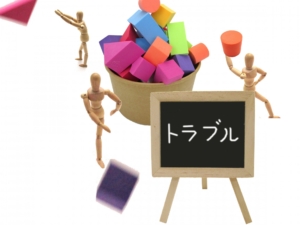Efforts to improve the global environment, such as addressing global warming, have become a crucial challenge for us.
In Japan, one of the environmental conservation efforts that individuals can participate in is sorting and separating waste.
It’s true that waste separation rules in Japan can vary significantly from one region to another, to the extent that even Japanese can find them confusing.
Furthermore, the complexity of waste disposal in Japan can also be influenced by the specific rules associated with the type of property one resides in.
In this article, we will explain why waste separation and disposal rules in Japan can be challenging, especially for foreigners visiting the country.
Waste separation rules and etiquette can vary depending on the place of residence. However, not following them can also lead to the termination of rental contracts in some cases. So, caution is advised.
The reason for waste separation during garbage disposal in Japan
One of the reasons for conducting waste separation in Japan, as some may be aware, is to “reduce waste output through the reuse of resources.
In Japan, there are four common methods for household waste disposa
- Incinerate and bury the ashes
- Bury it as is
- Recycle
Of the household waste generated by the general population, approximately 70% is incinerated with the resulting ashes buried, while around 20% is directly buried.
In Japan, it is said that the landfill lifespan for disposed waste is approximately 20 years.
(URL:一般廃棄物の排出及び処理状況等(令和3年度)について)
In other words, it means that in Japan, there will be no more disposal space for waste in approximately 20 years.
Therefore, in Japan, it is necessary to establish waste sorting rules and minimize landfilling while maximizing resource recycling.
What happens if you don’t separate your trash?
In Japan, there are generally no legal penalties for not separating your trash.
However, depending on the specific rules and regulations of the apartment or housing complex you live in, there may be consequences such as receiving notices of contract termination due to causing inconvenience to other residents or becoming a source of disputes with other residents.
If you do not follow the rules and dispose of your waste carelessly, some locations may resort to inspecting the contents by opening the trash or leaving it as non-collectable waste at the collection site.
If you repeatedly fail to adhere to the rules by accumulating trash in your room or its vicinity, causing unpleasant odors, and giving rise to pest issues, this behavior may also lead to the termination of your lease agreement. Please be mindful of this possibility.
The concept of waste separation in Japan.

If you live in Japan, how should you sort your trash?
In Japan, waste disposal rules are quite detailed, so if you are planning for a medium to long-term stay in Japan, you should exercise caution
The sorting of household waste in Japan can be broadly categorized into four main types.
| Burnable (Combustible) Waste: |
|
| Non-Burnable (Non-Combustible) Waste: |
|
| Resource (Recyclable) Waste |
|
| Bulky Waste |
|
The reasons why garbage separation in Japan is considered difficult
I think there are three reasons why garbage separation in Japan can be challenging:
- Different types of waste are collected on different days of the week.
- The methods of garbage separation vary depending on the region you live in.
- The rules for disposing of waste can differ depending on the property you reside in.
Different types of waste are collected on different days of the week
Burnable (combustible) waste, non-burnable (non-combustible) waste, and recyclable waste are collected on specific days of the week determined by the region you live in.
Additionally, household appliances like refrigerators and microwaves, as well as furniture such as desks, chairs, and sofas, are classified as bulky waste. Therefore, they cannot be disposed of as regular household garbage.
When disposing of bulky waste, you either need to request paid collection services from the local municipality or arrange for the disposal of unwanted items through private waste disposal companies.
The methods of garbage separation vary depending on the region you live in
The second reason why garbage separation in Japan is considered challenging is that the methods of waste separation can vary slightly depending on the region you live in.
The reason why garbage disposal rules can vary by region is due to Japan’s legal framework, which allows municipalities (cities, towns, and villages) to establish their own rules and regulations for waste collection.
Furthermore, the performance and capabilities of incinerators used by municipalities can vary, leading to differences in the types of waste that can be effectively incinerated by each city or town.
How much do garbage separation rules vary depending on the region?
For instance, in the case of Shibuya Ward in Tokyo, plastic waste is categorized as burnable (combustible) garbage.
Reference Link>>東京都渋谷区のゴミ分別ルール
However, in Matsudo City, Chiba Prefecture, unlike Shibuya Ward in Tokyo, there is a separate category for plastic waste, distinct from burnable garbage.
Furthermore, within the category of plastic waste, there are two additional subcategories.
- Recyclable plastics
- Other plastics
Failing to check and comply with these rules can result in violations.
Reference Link>>松戸市のゴミ分別ルール
As a result of these regional variations in rules, we always advise to check the waste separation rules on the official websites of the municipalities you will be living in.
The rules can differ depending on the property you stay
The third reason why garbage separation in Japan can be considered challenging is that the rules for waste disposal can also differ depending on whether you live in an apartment (condominium) or a standalone house.
【In the case of apartments (condominiums )】
In the case of apartments(condominiums), there are typically designated garbage disposal areas on the ground floor, in the basement, or within the property where residents dispose of their waste.
In cases where the garbage disposal area is indoors, there is often no issue with crows, and it is mostly common for residents to have 24-hour garbage disposal.
However, it’s important to note that all residents still need to adhere to the designated waste separation rules as determined by each region, even though the garbage disposal facilities may differ.
【In the case of standalone houses 】
In general, for standalone houses, there is often a collection point near the home where residents take their garbage on designated collection days.
Regarding local garbage collection points, there may be unique rules such as prohibiting garbage disposal on days other than the designated collection days.
The reason for this is to prevent Garbage Scatters like crows and stray cats from exploring through and scattering waste, which can lead to unsanitary conditions in garbage disposal areas.
It’s essential to always check the local rules for waste separation
In Japan, waste separation can be broadly categorized into four main types: “burnable (combustible) waste,” “non-burnable (non-combustible) waste,” “resource (recyclable) waste,” and “bulky waste.
Indeed, garbage disposal in Japan can be challenging for some people due to the varying waste collection days and different waste separation rules by region.
Garbage separation and disposal rules can indeed vary not only by the municipality you live in but also by the specific property or housing complex you reside in.
To understand such complex garbage disposal rules, it can be most helpful to seek support and guidance from Japanese residents who are familiar with the local regulations and can provide assistance with daily living.
Smart Relocate provides rental and real estate brokerage services in the Tokyo and Chiba Bay Area, in addition to offering support and assistance for individuals moving to Japan from overseas.
We are here to help with all aspects of your relocation and daily life in Japan.
You can easily reach out to us for inquiries and consultations through our email form or the live chat feature on our website. Please feel free to contact us with any questions or requests for assistance.


 CONTACT
CONTACT







